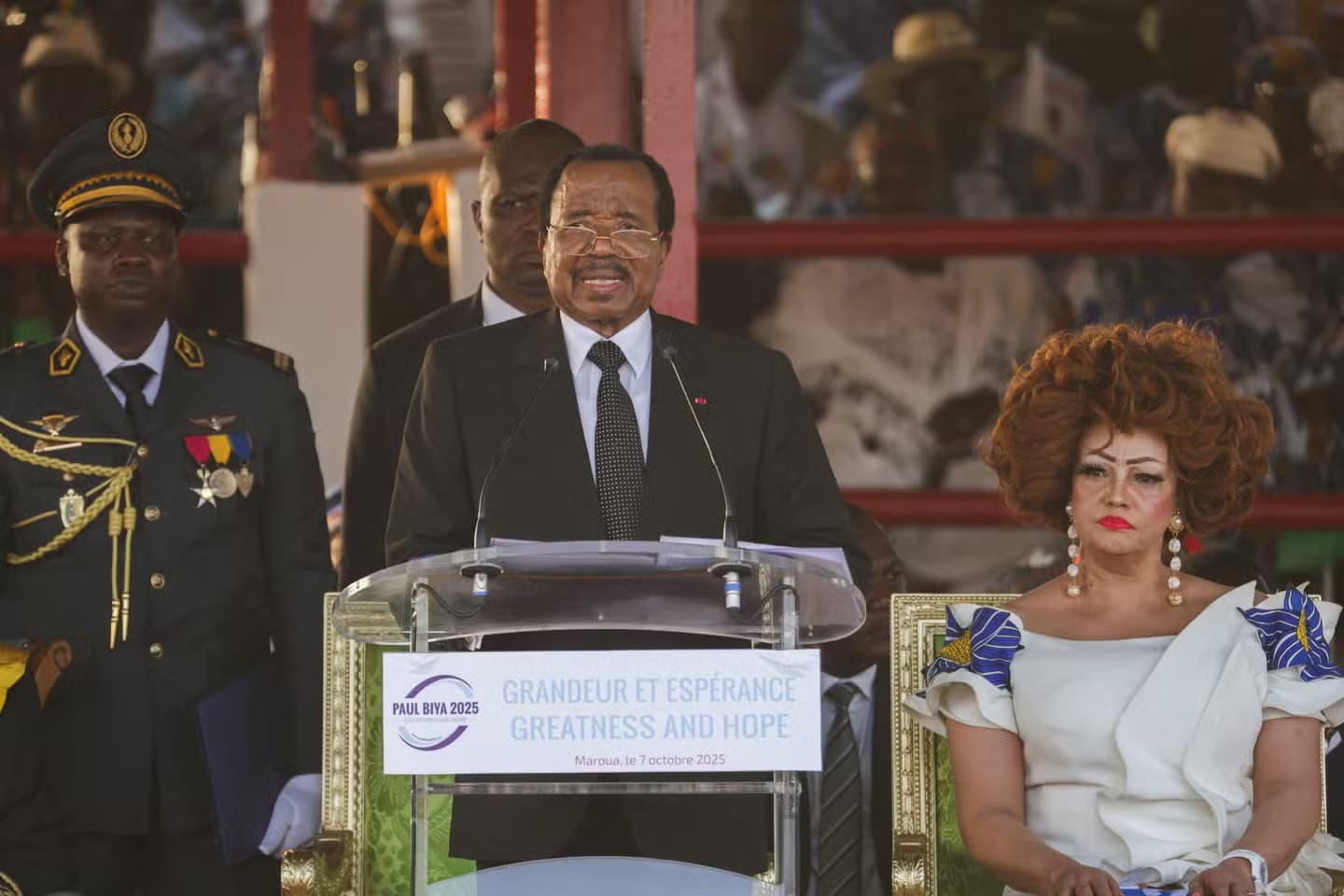We're loading the full news article for you. This includes the article content, images, author information, and related articles.
The re-election of 92-year-old President Paul Biya triggers violent unrest and fraud allegations, raising concerns across Africa about democratic stability and peaceful power transitions, issues of critical importance to Kenya and the East African region.

YAOUNDÉ, CAMEROON – Cameroon's Constitutional Council on Monday, 27 October 2025, declared President Paul Biya the winner of the presidential election held on 12 October, securing him a controversial eighth term in office. The official results awarded the 92-year-old incumbent, who has been in power since 1982, 53.66% of the vote. His main challenger, former minister Issa Tchiroma Bakary, was credited with 35.19%. The announcement has plunged the Central African nation into a post-election crisis, marked by deadly protests and widespread allegations of electoral fraud.
Opposition parties have roundly rejected the results. Tchiroma had declared himself the winner on 14 October, just two days after the polls, claiming his campaign's tallies showed he had won. Following the official proclamation, he described the outcome as a “masquerade” and “a stolen victory.” Other opposition figures, including the sole female candidate Tomaino Ndam Njoya, also rejected the results, citing a process undermined by irregularities and manipulation.
The declaration of Biya's victory has been met with fierce protests in several cities, including the economic hub of Douala and the northern city of Garoua, a Tchiroma stronghold. Supporters of the opposition have taken to the streets, erecting barricades and clashing with security forces. Reports from human rights organizations and international media indicate a violent state response. At least four people have been killed in clashes with security forces, and hundreds have been arrested. Human Rights Watch reported that security forces used excessive force against protesters. The government has confirmed arrests, with the Minister of Territorial Administration, Paul Atanga Nji, stating that those detained would face military courts on charges of insurrection and incitement to rebellion.
The credibility of the election has been challenged by numerous observers. A coalition of eight Cameroonian civil society organizations reported several irregularities, including the presence of deceased individuals on voter rolls and incidents of ballot box stuffing. Despite these concerns, the African Union's election observation mission stated the vote was “conducted largely in accordance with regional, continental and international standards.” However, the European Union has expressed deep concern over the violent repression of demonstrations and called for an investigation into the use of excessive force. The UN Secretary-General has also voiced deep concern about the post-electoral violence and called for restraint.
While direct economic ties between Kenya and Cameroon are modest, the unfolding crisis in the Central African nation holds significant relevance for the East African region. The situation in Cameroon serves as a critical case study on the challenges of democratic consolidation, generational transition in leadership, and the peaceful resolution of electoral disputes—issues that are paramount for the stability and prosperity of the East African Community (EAC). Political instability in a significant African nation can impact investor confidence and democratic norms across the continent. As a key member of the African Union, Kenya's diplomatic stance is often aligned with the continental body's response. The AU Commission Chairperson, while congratulating Biya, also expressed grave concern about the violence and called for inclusive national dialogue. As of Tuesday, 28 October 2025, the Kenyan government had not issued a formal statement on the Cameroonian election. The events underscore the ongoing struggle for democratic governance in Africa, a process keenly watched by policymakers and citizens in Nairobi and across East Africa.
Keep the conversation in one place—threads here stay linked to the story and in the forums.
Other hot threads
E-sports and Gaming Community in Kenya
Active 8 months ago
The Role of Technology in Modern Agriculture (AgriTech)
Active 8 months ago
Popular Recreational Activities Across Counties
Active 8 months ago
Investing in Youth Sports Development Programs
Active 8 months ago
Key figures and persons of interest featured in this article